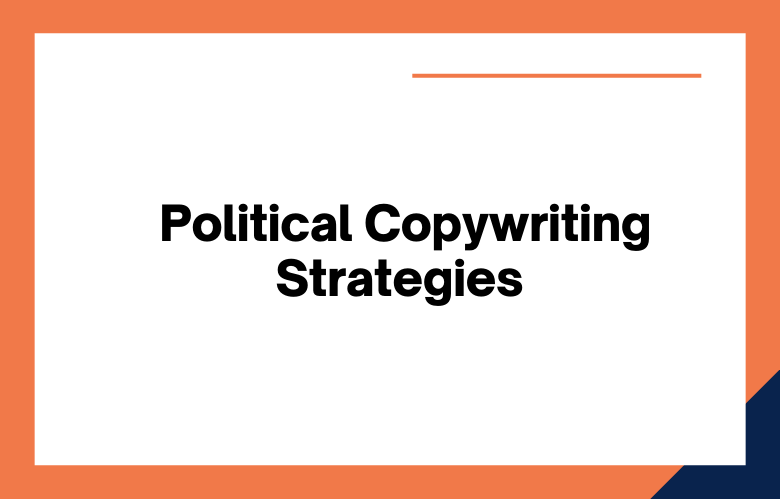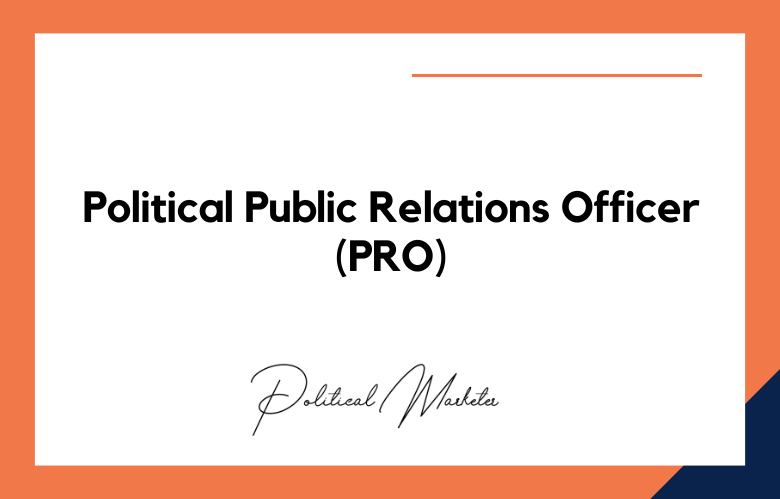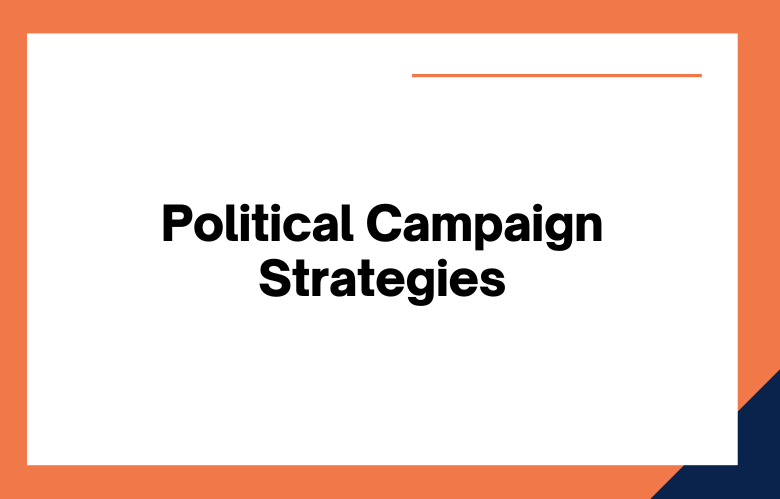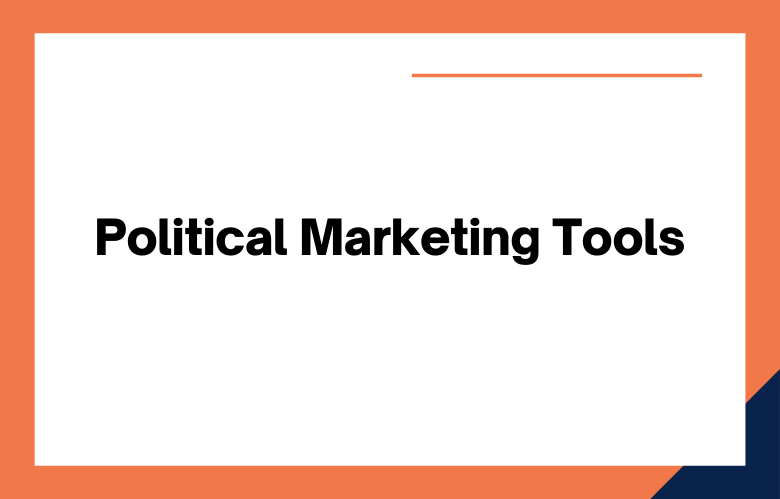Today’s political climate, it is essential to use persuasive copywriting strategies to convert your audience. In this post, I will explore some examples of these strategies.
It’s election season, and people listen to the debates every night. But what if you could learn about different political campaigns from a marketing perspective? Imagine knowing how strategists use words to make voters feel certain emotions or how they craft messages that resonate with your values. You’ll understand better why some candidates win while others lose.
What is Political Copywriting?
Political copywriting uses a different approach to persuade people. It is not based on logic or reason but on emotional appeals and shared beliefs.
It’s a style of writing that uses persuasion and attempts to change opinions to promote certain political ideologies.
Political copywriting is a form of advertising where the message and strategy focus on an audience’s political identity and influence it. Political ads use rhetoric, “language that aims at persuasion through manipulating discourse.
The importance of research and understanding your Political audience
For every election, proper research is crucial. You need to know how your Political audience will react to your campaign.
To understand your audience, you need to research what they care about and how they think.
How to use the right words to make a connection with voters
Use a combination of plain language and jargon to connect with voters. Simple language is words everyone can understand, while jargon is more technical terms experts use.
What makes a great speech? A great address connects with the voters emotionally but also presents logical ideas.
Tips for writing compelling ads and speeches that will resonate with potential voters
- Write about what the audience cares about
- Be specific and concise with your message
- Use simple language that is easy to understand but not simplistic
- Avoid using jargon or acronyms (unless you define them)
- Speak conversational, like talking to one person at a time.
- Trace your audience and what they want
- Please keep it simple, short, and to the point
- Use words that will resonate with your audience and make them feel like you understand their problems.
- Be genuine about what you can offer voters; don’t overpromise things you can’t deliver or lie about your position on issues.
- Engage your audience
- Use a personal story or anecdote that will resonate with the voter
- Give an emotional appeal
- Be concise and transparent in your words; don’t cram too much information into one ad or speech.
- Have a clear and concise message
- Understand your audience’s needs and wants
- Be specific about what you offer or provide
- Use short words and phrases to keep the attention of your audience
- Keep it conversational- people will be more receptive when they feel like you’re talking with them, not at them
- Write from the heart
- Keep it short and simple
- Be authentic- avoid sounding like a politician or someone else who is not you.
- Use your own words, even if they’re less eloquent than what you might find in a book on public speaking.
Political Copywriting Strategies
- Use language that is clear and concise
- Make your point quickly and with as few words as possible
- Focus on the benefits of your plan, not the negatives of others’ plans
- Be consistent in tone- don’t change from friendly to angry or vice versa
- Know your audience
- Be persuasive, not polarizing
- Make your message memorable and concise
- Include a call to action
- The “us” vs. “them” strategy:
- Appeal to the emotions of your audience:
- Use a catchy slogan or phrase that resonates with voters:
- Make your audience feel like they are part of the movement
- Use powerful words to inspire people to take action
- Tell stories that resonate with your audience’s values and beliefs
- Appeal to emotions by using solid arguments, facts, or statistics
- Make people feel like they’re part of a movement
- Appeal to their sense of patriotism and national identity
- Use powerful words that invoke emotion, such as “love” or “hate.”
- Create urgency by suggesting dire consequences if things don’t change.
- Keep your message concise
- Speak to the people, not politicians or bureaucrats
- Use a conversational tone and write in plain language
- Emphasize what you can do for voters instead of what they can’t do for themselves
- Avoid jargon and acronyms where possible
- Use the active voice, not the passive voice
- Use simple words that are easy to understand
- Keep sentences short and use less than ten words per sentence if you can help it
- Identify your target audience and what they want
- Understand the benefits of your candidate or party’s platform
- Use persuasive language to convince people to vote for you
- Focus on a single issue at a time; don’t overwhelm voters with too many issues
- Make sure you have enough resources available for this campaign
- Be confident
- Don’t be afraid to show your human side
- Use facts and statistics to back up your points, but don’t overdo it- you’ll sound like a robot
- Pick the right words for the situation- if you’re talking about an emotional topic, use more emotive language; if you’re talking about something factual or dry, useless emotion.
- Know your message
- Use persuasive language and powerful words to get your point across.
- Create a compelling headline
- Use persuasive language to get your point across
- Use social media to spread the word about your campaign
- Make sure you’re targeting the right audience for your message
- Provide evidence that backs up what you say to create trust with readers
- Avoid using little words and phrases, such as “I believe” or “the truth is” – instead, use terms like “according to our research” or “as many people know.”
- Create a strong headline.
- Engage readers with questions and statements.
- Use the power of numbers to make your point
- Use short sentences for easy readability
- Offer solutions to problems
- Include an eye-catching image or video
- Give the reader a problem
- Offer an answer to that problem
- Convince the reader that your solution is better than others’ solutions
- Frame the debate in terms of values, not just facts and figures
- Use powerful words, images, metaphors, and stories to evoke emotion in readers
- Appeal to people’s self-interest instead of moral obligation
- Show how your idea will make them more successful or happy
- Don’t be boring – use a conversational tone and write in the first person
- Be persuasive but not overbearing – don’t try to force your opinion on someone else
- Avoid being too negative or positive about your candidate; stick with the facts
- Use headlines that are catchy and eye-catching
- Proofread! Make sure you have no spelling mistakes before publishing it online.
- The headline should be catchy and concise.
- Start with a powerful statement that grabs the reader’s attention
- Use alliteration or rhyme to make your words memorable
- Make sure you have a solid call to action – tell people what they can do after reading your post
- Include an image in your blog post, preferably one that has been edited for maximum effect
- Be consistent in tone throughout the article – if it is severe, don’t switch to humor halfway through the piece.
Conclusion
In politics, people are looking for a lot of different things. They want reassurance that they are on the right side and have made the best decision possible. They want someone ready to fight for them against those evil liberals or conservatives.
For some, just showing up at all is an accomplishment—often because their voices were never heard before. Others may simply be looking for something new after years of disappointment with what’s been offered by both major parties.
Regardless, everyone has one thing in common regarding political copywriting strategies – they want you to understand them better than any other candidate so that you can speak directly about how your policies will benefit them.
Frequently Asked Questions (FAQs)
What is political copywriting?
Political copywriting is the strategic writing of persuasive content for political campaigns, candidates, parties, or advocacy groups to shape public perception, influence voter behavior, and drive action.
Why is political copywriting important in campaigns?
It helps craft compelling narratives, motivate supporters, raise funds, clarify policy positions, and maintain message discipline across all platforms.
What are the key elements of a great political copy?
Clear messaging, emotional appeal, factual accuracy, strong calls to action, consistent tone, and alignment with the candidate’s voice.
What types of content does a political copywriter create?
Speech scripts, campaign slogans, social media posts, press releases, email campaigns, SMS texts, policy briefs, ad scripts, and website copy.
How does political copy differ from commercial copywriting?
While commercial copy aims to sell a product, political copy aims to sell a vision, ideology, or leadership—focusing more on values, trust, and emotional impact.
What is message discipline in political writing?
Message discipline means staying focused on a few core campaign themes and repeating them consistently across all communication.
How does storytelling enhance political copywriting?
Narratives connect emotionally with voters, humanize the candidate, and make complex policies easier to understand and remember.
What is persuasive language in political copy?
It includes emotionally charged words, repetition, contrast, and rhetorical questions that appeal to values, fears, and hopes of voters.
Can AI tools help in political copywriting?
Yes. AI tools can assist with drafting, sentiment analysis, A/B testing, language optimization, and even voter segment personalization.
What makes a political slogan effective?
It should be short, memorable, emotionally resonant, and reflect the campaign’s core message or promise.
What role does audience research play in copywriting?
Knowing the audience helps tailor messages to their beliefs, concerns, demographics, and cultural contexts for higher engagement.
How do political copywriters handle negative messaging?
They use contrast framing, highlight differences with opponents, and carefully craft criticism to avoid backlash or defamation.
What are common mistakes in political copywriting?
Being too generic, inconsistent tone, ignoring voter sentiment, overusing jargon, and lacking a strong CTA.
How is political copywriting used in social media?
Through targeted, visually supported, and often platform-specific content like short tweets, reels, memes, or quote cards.
What is GOTV copywriting?
GOTV (Get Out The Vote) copy is designed to motivate voter turnout through reminders, urgency, and simplified voting instructions.
Can political copy be multilingual?
Yes. Translating and localizing political copy is essential for reaching diverse audiences across language barriers.
What is the tone of political copy?
Tone varies by campaign—it can be assertive, hopeful, empathetic, urgent, or unifying depending on the candidate’s brand and strategy.
How does political copy help in crisis communication?
It provides clear, controlled messaging to calm fears, offer transparency, and reframe narratives during scandals or emergencies.
What is the role of compliance in political copywriting?
Copy must comply with election laws, ad policies, and fact-checking standards, especially around claims, funding, and disclaimers.
What’s the future of political copywriting?
Expect more real-time data-driven personalization, integration with AI-generated messaging, omnichannel delivery, and ethics-centered storytelling.
One way to get in touch is by filling out our online form on this site or give us a call at +91 9848321284. Let’s work together today!










